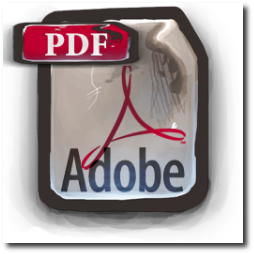Posted by: Samker
« on: 10. October 2009., 07:31:09 »
For the fourth time this year, Adobe has admitted that hackers were using malicious PDF documents to break into Windows PCs.
The bug in the popular Reader PDF viewer and the Acrobat PDF maker is being exploited in "limited targeted attacks," Adobe said yesterday. That phrasing generally means hackers are sending the rigged PDF documents to a short list of users, oftentimes company executives or others whose PCs contain a treasure trove of confidential information.
Adobe promised to patch the vulnerability on Tuesday, Oct. 13, the same day that Microsoft plans to issue its biggest-ever collection of security updates .
The bug exists in Reader and Acrobat versions 9.1.3 and earlier on Windows, Mac OS and Linux, said Adobe in a security advisory published Thursday, but as far as the company knows, it is being exploited only to hijack Windows PCs. "There are reports that this issue is being exploited in the wild in limited targeted attacks," said Adobe. "The exploit targets Adobe Reader and Acrobat 9.1.3 on Windows.": http://www.adobe.com/support/security/bulletins/apsb09-15.html
Adobe will plug the hole next week as part of its quarterly security update for Reader and Acrobat. Last June, Adobe announced it would follow the lead of companies like Microsoft and Oracle, and release regular security updates for Reader and Acrobat.
Originally, Adobe was to post patches last month, but a scramble during July to fix several flaws, including some introduced by Microsoft in a code "library" used by its own developers, as well as those in other companies, wreaked havoc on Adobe's schedule. It said more than a month ago that it would instead push the patch date into October.
Until a patch is released next week, Windows Vista and Windows 7 users can protect themselves by enabling Data Execution Prevention (DEP), a security feature designed to stop some kinds of exploits -- buffer overflow attacks in particular -- by blocking code from executing in memory that's supposed to contain only data. Instructions on how to enable DEP are available on Microsoft's support site: http://windows.microsoft.com/en-us/windows-vista/Change-Data-Execution-Prevention-settings
Windows XP users should disable JavaScript in Reader and Acrobat, added Adobe. That wouldn't block all possible attacks, but will stymie the exploit now in the wild.
Adobe has struggled this year to stay ahead of hackers. In March, the company quashed a PDF bug that attackers had been using for more than two months . It again patched Reader and Acrobat in May to block another zero-day .
In July Adobe fixed a Flash PDF-related flaw that was being used by hackers.
Next Tuesday's Reader and Acrobat updates will also patch a unknown number of other vulnerabilities, Adobe said.
(ITworld)




 Total Members: 14197
Total Members: 14197






